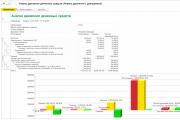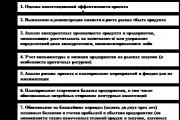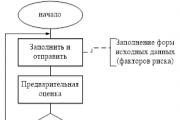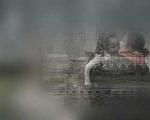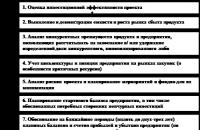Daria, 34 years old
A few months ago, I became terribly afraid of getting cancer... even the word “cancer” sends chills down my spine. At one time, this topic was discussed on all channels and on the Internet in connection with the story of Zhanna Friske and other famous artists, then two of my friends, very young people, died of brain cancer at the same time.
I started looking on the Internet for information about the causes of the disease and saw that the surge in the disease in the last 10 years is associated with the advent and spread of cell phones, Wi-Fi... Now I even began to turn off my cell phone at night, and I generally avoid solariums a mile away. But, as luck would have it, I also believe that thought is material. How to get rid of this phobia?
"Don't be afraid to think about your fears"
Yulia Zakharova, clinical psychologist
The fear of getting cancer is called cancerophobia. In many ways, it is justified, because cancer is one of the most common causes of death. But like any other phobia, this fear is irrational and exaggerated. And a person suffering from a phobia understands this.
Women are more susceptible to carcinophobia. As a rule, the starting point is the death of a loved one, an acquaintance, or sometimes just a famous person from cancer. Trying the situation on themselves, people think: “What if this happens to me?” Some may develop a fear of dying from cancer and, as a result, a strong desire to protect themselves. This can be done in different ways.
Regular medical examinations, giving up bad habits, following a diet and rest regime, playing sports - all these are reasonable protective measures. If thinking about a terminal illness prompts a person to take care of himself, then this is a completely healthy response to such a situation. But in most cases, behavior with cancerophobia does not make a person healthier. It can limit his activity, become intrusive and exhausting. One way or another, this behavior is aimed at reducing anxiety. What is it like?
Avoiding danger
Often people with cancer phobia avoid situations that are somehow related to cancer. Avoidance can manifest itself in different ways:
- Sometimes a person manages to structure his life in such a way as not to have contact with the object of his phobia (for example, not to go to the solarium, to move away from power lines). But the list of reasons that influence the possibility of cancer is growing steadily. The tabloid press, in pursuit of public attention, is replete with headlines about how to behave in order to avoid getting cancer: “This is what scientists have discovered: cancer causes...”. As a result, a person with cancerophobia begins to feel backed into a corner - it seems that everything is dangerous.
- Refusal of medical examinations for fear that an illness will be detected.
- Avoiding people with cancer.
- A person tries not to think about the possibility of getting sick, drives such thoughts away from himself. And as a result, he finds himself in a trap. On the one hand, in order not to get sick, he must think about precautions, on the other hand, he is afraid to “attract” bad things to himself with such thoughts. And if a person suffering from cancerophobia catches his eye on something containing the root “onko”, he tries to immediately suppress these thoughts or switch to something else.

Attempts to reduce anxiety
It is not always possible to avoid situations associated with cancer. In this case, other strategies aimed at reducing anxiety come into play:
- Searching for information about the causes of the disease, new research in this area.
- Constantly “scanning” your body, tracking “frightening” changes. Often, fixing attention on a specific part of the body, a person really begins to feel that “something is wrong” with it. A person can interpret any manifestations of the body as symptoms of an incipient disease.
- Constant health checks - tests, examinations. Such measures help only for a short time, anxiety decreases, and then thoughts appear: “What if they underexamined, didn’t notice, missed?” And the person turns to doctors again.
- Obsessive search for support from loved ones. A person literally follows relatives or friends, asking: “I won’t get sick, will I?” Will not die?" The relief of receiving support reduces the anxiety, but then it returns.
- Rituals (saying certain words out loud or silently, or a certain set of actions) that neutralize any encounters with oncothema.
Cancerophobia can develop in different ways. Sometimes phobias go away on their own, and a person manages to cope with them on his own. But it also happens that phobias take over new areas of human life. Starting with avoidance, a person moves on to complex rituals. Unsuccessful attempts at self-medication can lead to the disorder becoming chronic and depression developing.
Avoidance temporarily reduces anxiety, but increases the belief in one's own vulnerability.
Cancerophobia is not so harmless. A severe phobia that greatly affects the patient's life usually becomes the tip of the iceberg—the visible part of the person's anxiety. In addition to phobias, patients are sometimes diagnosed with other mental disorders: generalized anxiety disorder, panic disorder, hypochondriacal disorder, agoraphobia, social phobia, obsessive-compulsive disorder.
Finding the right solution
Cognitive behavioral psychotherapy is very effective when working with phobias. Drug therapy may also be necessary. Try not to delay contacting a specialist. What should you think about before going to a psychotherapist?
- Don't be afraid to think about your fears. Attempts not to notice the terrible lead to the opposite effect - suppressing thoughts works exactly in the opposite direction, strengthening them. No, you cannot “invent” a disease for yourself.
- Think realistically. Often with cancerophobia, a fantasy arises that the disease will strike suddenly and inevitably lead to death. However, this is just one of the scenarios, the most catastrophic. In reality, many people successfully fight cancer. Remind yourself of this.
- Fight fear, don’t pretend that this topic doesn’t exist. Avoidance temporarily reduces anxiety, but increases the belief in one's own vulnerability. Learn to tolerate anxiety. It is the reluctance to experience anxiety that leads to fixation and the development of a phobia. Think about what most people do in such situations? Try to do the same. As a rule, anxiety increases sharply at the beginning, then remains at the same level for some time and fades away half an hour after the start.
About the expert
Clinical psychologist, member of the Association of Cognitive Behavioral Therapists, teacher at Psychodemia. More details on her website.
David Bowie, Alan Rickman, Umberto Eco, and for Belarusians also Anna Volskaya and Neil Gilevich - for the past three months of 2016 there have been too many high-profile deaths from cancer. How to maintain a normal picture of the world after this news? An oncologist and a psychologist told KYKY how to cope with cancer phobia.
No matter what information site you open, you will find a note about cancer everywhere. The disease is rapidly getting younger (this is a fact), the Belarusian media share stories like the one when a man “burned out” from cancer literally a month after being examined at the clinic. The story with cancer is similar to the situation with suicide: after another suicide is covered in the media, emergency psychological help lines receive many times more calls than on a normal day. Even though the diagnosis “cancerophobia” does not officially exist in psychiatry, the synthesis of Latin and Greek gave us this term, and there is no hiding from it. Cancerophobia is an irrational fear of one day discovering a malignant neoplasm. Usually the condition is caused by the death of a loved one from illness, although anything can happen: for example, stress can also be the cause. Like any disorder, the fear of hearing a cancer diagnosis is too difficult a problem to solve on your own. You need to figure out what to do if the fear has developed into a phobia, and what examinations to sign up for in order to be confident in the future.
Part one. Conversation with psychologist Sergei Zizyuk
KYKY: In what case should we talk specifically about cancerophobia?
Sergey Zizyuk: If you have been examined and everything is fine, the doctor says that there are no symptoms of oncology, but the person still feels them, then this is the first bell to think about it.
KYKY: Thoughts are material. If you convince yourself for a long time that you will get sick, can this happen?
About this theme: Two patients in my entire career. Right to euthanasia S.Z.: Some human organs are weaker from birth. They will be the target organs if you develop a mental disorder. With strong excitement, someone begins to feel sick, someone's stomach becomes upset, and for others, their face turns red, which may mean problems with blood vessels. When a person also thinks about it and gets worked up, the likelihood of affecting these organs is even higher: in “emergency” mode, weak organs work harder. Against this background, you can imagine cancer of this organ. A person comes to a therapist, it turns out: yes, there is a slight disturbance, but not so much that the patient is outright suffocating. Then you need to contact psychologists or psychotherapists. It is necessary to correlate the symptoms that appear with their intensity. There is such a disease in psychiatry called somatoform disorder. How does it usually manifest itself? People come to the general practitioner and say “I have a gastrointestinal disorder” or “frequent shortness of breath, rapid heartbeat, signs of nausea.” As they say, there are no healthy people - there are underexamined ones: everyone has a predisposition to certain ailments. But it happens that the patient’s symptoms are in no way related to the diseases that he has. In this case, doctors usually refer you to psychotherapists or psychologists to figure out what the problem is.
KYKY: What could cause such a disorder?
S.Z.: There are people who begin to invent the same cancer for themselves because relatives or one of their friends died from it, and anxiety appears against the backdrop of the stress they have experienced. In a broader sense, this can be called fear of death. But the fear of death is always the fear of life. Why is a person afraid to die? He didn’t finish something, didn’t finish saying something, is not satisfied with his life - the quality of the way he lives, his relationships with others. From this, compensation begins: instead of being engaged in life, a person begins to “try not to die,” thereby delaying the solution to the problem.
KYKY: Aren’t people irrationally afraid of dying, but keep their “shortcomings” in their heads?
S.Z.: What's so bad about dying? You just won't exist, that's all. You know, it's like getting through the day. If it was so rich, good, healthy, then are you afraid to fall asleep when you come home? No. You lie down and rest - you are tired. It's the same with all life. If it is intense, full, you just get tired at the end and die. This is fine.

KYKY: To die quietly, like an old lady in a dream, is not scary. And dying in agony from an illness is not very pleasant...
S.Z.: It’s clear that you don’t want to die like that. But we are talking about those patients who are just inventing cancer for themselves. It would be one thing if the disease already existed, but completely different work is needed - psychological therapy will be aimed at ensuring that the person has time to live out the rest of the time that is allotted to him: he has done his business, lived it to the maximum. And if we talk about the category of patients who are not sick, but only imagine it for themselves, then why would they have this? From that very fear of not doing something. Not everyone understands this. But if such a problem arises, then only psychotherapy will help.
KYKY: That is, the phobia goes away through therapy and conversations?
 About this theme: How to stay alive if your loved one is heading towards death
About this theme: How to stay alive if your loved one is heading towards death S.Z.: Yes, and preferably with a specialist, of course.
KYKY: I read different stories of hypochondriacs: when a person is afraid of getting sick, he is afraid of everything. There is hardly anyone who is afraid of getting cancer, but not afraid of hepatitis...
S.Z.: All diagnoses in psychiatry are made according to ICD-10. This is the international classification of diseases, ten means tenth revision. In America they use DSM-IV for the same thing. I can show you how they are displayed here. (Sergey gives me a selection of four sheets, each of which is divided into two columns in landscape orientation. Each page is filled with diagnoses and their classifications, font size 9, no more. There are nine different types of schizophrenia alone - approx. KYKY) There is no diagnosis of “cancerophobia” as such. Usually its symptoms are attributed to another, broader disease. Let's say panic disorder: fear of cancer will appear as one of the symptoms. Or an anxiety disorder. You see: there are many diagnoses, and each has its own extension. There is a diagnosis called “Specific isolated phobias.” If cancerophobia occurs in its pure form, and nothing else is mixed in, then it can be classified here. But this is rare. In my practice, there were patients who were officially diagnosed with “panic disorder”, but at the same time they observed symptoms such as cancerophobia.
KYKY: Does media coverage of celebrity illnesses affect the psychological state of other people?
S.Z.: More often, fear is associated with the illness of relatives. But in my practice there was a case when a patient, after the death of Zhanna Friske, began to be afraid of getting cancer. Moreover, Zhanna Friske is nothing to her at all; the woman did not even follow her work and was not a fan. I just came up with this idea.
KYKY: That is, you shouldn’t pay attention to individual cases in the media?
S.Z.: It’s easy to say “don’t pay attention.” Why do people read the media in general? Information, yes, but also from idleness. It’s one thing when you’re looking for something on a subject that interests you, it’s another thing when you come across something and it starts: “Ah! What if I need that too?” If you come to the store and see a terrible sweater, you won’t try it on, knowing that you don’t need it? Why then try on someone else's cancer if you don't want to have it?

KYKY: On the other hand, there is a striking example of Angelina Jolie, who removed her mammary glands because she knew that the likelihood of getting cancer was very high. Maybe if there is a risk, it wouldn’t hurt to check more often?
 About this theme: The story of a child diagnosed with developmental delay, told by his mother
About this theme: The story of a child diagnosed with developmental delay, told by his mother S.Z.: People who have a hereditary condition are always warned about this when visiting a doctor, including an oncologist. In such cases, yes, you can be examined more often, but in principle, once a year will be quite enough. Plus, of course, you need to monitor your lifestyle: nutrition, smoking, drinking alcohol, physical activity. Of course, no one is immune, but at least you can reduce this likelihood. There are two factors in the development of any disease: heredity and the environment in which a person lives. It's the same with mental disorders.
Part two. Conversation with oncologist Tatyana Zavadskaya
KYKY: How often should you be examined in order to detect the problem in time?
Tatiana Zavadskaya: It all starts with the clinic - this is the first stage. Let’s say everyone should have fluorography done every year. Once you reach adulthood, you get a fluorography once a year, that’s it. After 45 years, it is recommended to have a colonoscopy once a year to check for colon cancer. Everyone should do the same: regardless of whether you were sick or not. Also ultrasound: it is worth checking the abdominal organs and the thyroid gland. Punctures are performed when the ultrasound specialist sees tumors. Women also need to pay attention to the mammary glands - once a year, if there are no pathologies. Mammography - once a year after 45 years. If any focal changes, pathologies, or even mastopathy appear, it is natural to be examined more often. Each one has an individual approach, and each localization, say, also has its own approach.
T.Z.: Yes, once a year is enough.
KYKY: When gynecologists palpate the breasts during an appointment, can this be considered a breast examination?
T.Z.: It is necessary. Palpation examination is also effective. Both girls and women should examine themselves by palpation once every three months. In some cases, it is recommended to do an ultrasound of the mammary glands. For example, enlarged lymph nodes in the armpits are really a reason to check the condition of your breasts. Again, mastopathy: this too needs to be checked in any case. It is necessary to undergo a thorough examination if a reason arises, otherwise palpation once a year is sufficient.

KYKY: There are also tests for tumor markers. How is pathology detected by blood composition?
T.Z.: Each disease has its own marker. They are not taken comprehensively: if there is a suspicion, say, of problems in gynecology or with the mammary glands, then such markers are made. The analysis determines the amount of marker in the blood. Same PSA (prostate-specific antigen – approx. KYKY), for example, is associated with the prostate gland in men: after 45 years, it is worth getting tested for this marker every year, because it helps to diagnose cancer and prostate adenoma in the early stages. Cases, of course, are different: in principle, PSA can be normal, but there is already cancer in the gland.
 About this theme: Superpeople, rose-colored glasses, documents. Debunking the three main myths about child adoption
About this theme: Superpeople, rose-colored glasses, documents. Debunking the three main myths about child adoption KYKY: But if the indicator is normal, but there is a suspicion, should the doctor recheck?
T.Z.: Of course not! If the patient has complaints, then blood is taken for PSA first, and in addition to this, an ultrasound is performed by a urologist - they are checked using all methods.
KYKY: The risk group includes people with heredity and an unhealthy lifestyle?
T.Z.: By and large, everyone is now at risk. What we breathe, what we eat... The same meat is completely stuffed with antibiotics and hormones. Why has there been such growth? So there is only one recommendation - to be examined regularly, this is clear.
Where to get checked for diseases
Tatyana pays special attention to breast cancer: it is now not uncommon for a patient with such a diagnosis to be only 30 years old. KYKY reminds that even in the most difficult financial situation you can get psychological help: there are psychologists’ offices at clinics, which people come to by appointment, but completely free of charge.
In addition, at the Minsk City Clinical Psychiatric Dispensary (Bekhtereva St., 5) there are anonymous sessions of individual psychotherapy for affective, anxiety and behavioral disorders. This is truly anonymous: you can write any fictitious name on the card and get a whole hour of a specialist for 101,700 rubles.
Tests for tumor markers can be done conveniently and quickly, without even having to deal with slow government agencies. At INVITRO, for oncological studies of various types they ask from 113,200 to 499,000 rubles; at Sinevo, the price tag starts from 131,100 rubles. Ultrasounds are performed in regular clinics for a fee. They can do it for free, of course, but only when a problem really arises and a referral is given.
We still advise you to maintain an optimistic attitude. As long as there is no illness, there is nothing to think about it. It’s always easier to force yourself into any psychological state, but getting back out is much more difficult - only with a specialist, and not quickly. Sergei Zizyuk will not let you lie.
If you notice an error in the text, select it and press Ctrl+Enter
Any strong and obsessive fear that haunts a person for a long time is called a phobia. One of the most common among our population is cancerophobia (fear of getting cancer).
Oncological diseases are really progressing in the modern world.
And the number of people who are terrified of them is growing in proportion to the number of people who are sick. Irrational anxiety significantly spoils a person’s quality of life, deprives him of joy, and sometimes leads to mental disorders. What to do? Where does such strong fear come from? How to get rid of cancerophobia and thoughts: “I have cancer”? Is it possible to free yourself from fear on your own, or is it necessary to go to a psychologist? Let's answer these questions.
Causes
There are many reasons for cancerophobia; here are those that psychotherapists most often identify in their practice:
- One of your relatives has or has had cancer. The phobia affects many who have witnessed the illness of loved ones. Death becomes a great stress and causes even greater progression of the anxiety syndrome. Every now and then a person is overcome by thoughts: “I probably have bad heredity, I am at risk, there is a high probability that I will get sick,” and the like.
- Accidental or forced stay among cancer patients. There are often cases when fear arises among medical staff working in dispensaries, medical students doing internships in relevant clinics, or people who often have to come into contact with the dying.
- Unexpected referral for diagnostics. It happens that a patient goes to the doctor with a banal “sore”, but receives a referral for cancer cell tests. For some, this fact leads to real panic. And even if the results do not reveal anything, against the background of stress, a person continues to have increased anxiety and obsessive thoughts. A careless phrase from a doctor can become a serious cause of long-term emotional distress in suspicious people.
- Presence of chronic diseases. People who have been suffering from relapses of chronic illnesses for a long time begin to convince themselves that sooner or later this will inevitably lead to the development of a tumor.
- Sudden changes in health and appearance. Feeling a sudden decrease in appetite, weight loss, loss of energy and similar changes, some immediately diagnose themselves: “I probably have cancer,” without giving the slightest chance to other explanations for their poor health.
- Neuroses (vegetative-vascular dystonia). Autonomic disorder and neurosis can arise due to stress, psychological conflicts and other reasons not related to cancerophobia. But a person with such a diagnosis becomes susceptible to hypochondria (excessive worry about one’s health). And against this background, fear of the most “terrible” deadly diseases develops.
It is worth noting that the phobia has no age limits. Fear of cancer affects both very young people and the elderly and middle-aged. As a rule, these are suspicious, impressionable, easily vulnerable, and distrustful individuals. The peak of “carcinophobes” falls on the age category of 30-40 years.
Symptoms, manifestations, signs
Despite the many factors that cause fear of a fatal disease, the symptoms of such a disorder are very typical and are similar in 98% of sufferers. They can be divided into 3 types:
Emotional
- Feeling of strong negative emotions when visually or auditorily hearing the word “cancer.”
- Frequently immersing oneself in the situation of “what if I already have cancer.” Experiencing non-existent events.
- Constantly waiting for a tumor to appear, a feeling of its inevitability.
- Feelings of emptiness, irritation, helplessness.
- Frequent mood swings, tearfulness.
- Things and events that previously caused joy and positive experiences no longer produce such a reaction (nothing pleases, everything seems gray).
Mental

- Inability to concentrate in the present.
- Feeling of the unreality of the world.
- Inability to free yourself from images and thoughts associated with the disease.
- Awareness of the problem and fear of losing control over it (going crazy, not being able to withstand the stress).
- Understanding the phobia but not being able to cope with it.
Physical
- Headache.
- Tachycardia.
- Shortness of breath, lack of air.
- Neuralgia.
- Loss of appetite, nausea, weight loss.
- Trembling, tremor of limbs.
- Pressure surges.
- An increase in temperature, or, conversely, a frequent feeling of cold or chills.
- Increased sweating.
- Weakness, poor sleep.
Physical symptoms are usually the result of the constant stress that a person suffering from a phobia is under.
Cancerophobia sometimes leads to the point of absurdity - a person begins to do a bunch of unnecessary examinations and literally does not leave doctors’ offices. Doctors' assurances that there is no cause for concern and the availability of good tests for such people are unconvincing. The sufferer torments himself and those around him, constantly repeating the phrase: “I’m afraid of getting cancer.” Against the background of constant stress, natural reactions occur - loss of appetite, weight loss, fatigue, which are also perceived as symptoms of incipient tumors. The unfortunate person begins to feel that doctors and relatives are simply hiding the truth from him.
Another “self-torment” is searching for information in literature and the Internet. Having read “horror stories”, a person, falling into attacks of fear, tries to “try on” various symptoms and may even begin to feel them on a physical level.
It is possible to get rid of fears. And there are enough people in the world who went through these torments and were able to restore their peace, forever freed from the fear of not only fatal diseases, but also any other diseases.
How to get rid of it?

It’s worth noting right away that the best way out is to see a psychotherapist. Don't underestimate the problem. Staying in constant tension and depression reduces the body's immunity. Against this background, diseases can really begin to develop. Such illnesses as mental disorder and neurosis also threaten. The phobia begins to express itself organically. And not everyone is able to climb out of this “hole” on their own.
The doctor, in addition to psychotherapy, may prescribe medications that reduce anxiety, which will only speed up treatment.
Usually a standard series of sessions is enough to get rid of the fear of cancer.
The techniques of hypnosis and neurolinguistic reprogramming work great in this case. An experienced psychotherapist is able to make a patient’s life easier in literally 3-4 such sessions.
Alas, not everyone wants to go to the doctor, and not everyone has such an opportunity. It is quite possible to overcome obsession on your own, but it will require great effort, willpower, and, most importantly, great desire.
How to reduce fear yourself
The first thing to do is to understand the root of anxiety. The basis of cancerophobia is not the fear of cancer as such, but the fear of dying. Early, sudden, painful. Therefore, you need to work not with the topic of oncology, but with death, no matter how frightening it may sound. It is necessary to realize and accept the fact that absolutely all of us will die someday. And people have to die from something. Cancer is just one of thousands of causes. According to statistics, people die more often from heart attacks and strokes.
Tumors don't just happen. Recently, more and more doctors are beginning to lean toward the metaphysical causes of oncology. The disease provokes the development of feelings such as strong resentment, anger, anger, and a feeling of injustice in the world. There are plenty of cases where people heal from serious illnesses by finding negativity in themselves and working through it. There are excellent books on this topic by such authors as Louise Hay, Liz Burbo, Valery Sinelnikov, designed for a wide range of readers. They not only explain the nature of diseases, but also methods on how to get rid of them. This self-psychotherapy gives excellent results.
A malignant tumor detected at an early stage can be easily treated. It does not develop in one day. It is enough to undergo examinations once a year for prevention. You cannot insure yourself against the disease, but you can prevent its occurrence. And the less you think about the bad, the greater the chances of not encountering it.
Technique against phobia
The problem with a phobia is that you create a negative emotion associated with the visual or auditory perception of a specific word. In this case, these words are “cancer, oncology.” And the brain remembers this connection. For example, if you were on vacation at the seaside and got a lot of positive experiences there, then the word “sea” will evoke a positive emotion in you every time. The goal is to retrain the brain to react negatively to words associated with illness.
There is a good technique for this:
- Find a strong, pleasant experience in your memory. It can be anything, as long as you still have a positive feeling in response to the memory.
- Identify a small, subtle action that you will use in the future to trigger this euphoric memory. For example, this could be crossing your fingers, pinching your arm, or rubbing your earlobe.
- Recall this memory again and try to “revive” it. Activate all the details that accompanied the event: smells, tastes, warm or cool weather, blowing wind. Any little thing that you can remember, relive it again.
- When you feel that you are at the peak of this pleasant emotion, perform the selected action (pinching, rubbing the earlobe, whatever is more convenient for you).
- Stay in this for a few seconds and come back to reality.
- Do it all over again. Strengthen the connection between sensation and action. Practice a few more times.
- Create a few more similar images. Link other movements to other attractive memories. Practice every day for 10-15 minutes until you notice that performing the action automatically causes a positive reaction. For example, you pinched your hand and immediately the pleasant experience that you chose as an association formed in front of you.
Whenever you notice that thoughts about illness begin to drag you down, take a conditional action. You should automatically switch to a good memory and positive emotions. The more often and diligently you do this technique, the faster you will find that “scary” words will no longer cause negative and painful experiences in you.
Conclusion
Any fear is a purely psychological problem that a person created in himself independently. Cancerophobia is highly treatable, and the sooner you take action, the easier it will be to get rid of it.
“One wise man met the Plague on his way and asked: “Where are you going?” She replies: “To the big city. I need to kill five thousand people there.” A few days later, the same sage met Plague again. “You said that you would kill five thousand people, but you killed all fifty,” he reproached her. “No,” she objected, “I only killed five thousand, the rest died of fear.” Probably everyone has heard this parable. The beauty of this parable lies in the fact that it makes you look at a “terrible” disease with “different” eyes. Would you like to be among those who “died of fear”? I sincerely hope not. Then this article is just for you.
Have you ever been tormented by similar fears, thoughts, “premonitions” of illness, beliefs?:
- You inflated some simple and mild symptoms to the point of being fatal: you sneezed - well, swine (bird) flu, a pain in the stomach - well, like stomach cancer, you coughed - well, that's it! bronchitis or pneumonia, sore throat – laryngeal cancer!;
- You believed that all diseases are caused by the evil eye, damage, and toxins in the body;
- noticing a lump in any organ of the body, the ground disappeared from under your feet and only one thing was spinning in your head: that’s it, it’s cancer!;
- You washed your hands every five minutes, covered your mouth in public institutions so that, God forbid, you would not get infected;
- You were afraid to go outside, because supposedly there were only germs and viruses around;
- You constantly self-medicated, swallowed packs of dietary supplements, and cleaned the intestines;
- Constant thoughts about illness did not leave you;
- You were constantly on the Internet, on various forums, reading various “horror stories” about how someone died of cancer, “having unsuccessfully fought the disease for several years”;
- You were constantly haunted by an alarming feeling that everything was bad;
- You were “terribly” afraid, embarrassed and could not get to the doctor;
- Were you afraid to go to the doctor: “What if they say that everything has already started or that I have cancer?”;
- You were embarrassed to go to the doctor, you couldn’t force yourself, you put off going to the doctor until later;
- You were afraid that you would have an incurable disease;
- Were you afraid that you would have an operation that would disfigure your body?
The list of such negative situations can be endless...
What to do with your fear of getting cancer?
It would seem that the answer is very simple: we need to get rid of fears.
But there is one big “BUT”:
It is impossible to get rid of this internal state of tension, fear and panic through an effort of will. Even if you manage to suppress it within yourself for some time, all the same, at the first convenient stressful situation, your fear will “come out” to the surface.
Why?
Because any fear you have is the result of your UNCONSCIOUS ways of thinking, thinking, feeling and acting, the result of your beliefs and past experiences.










